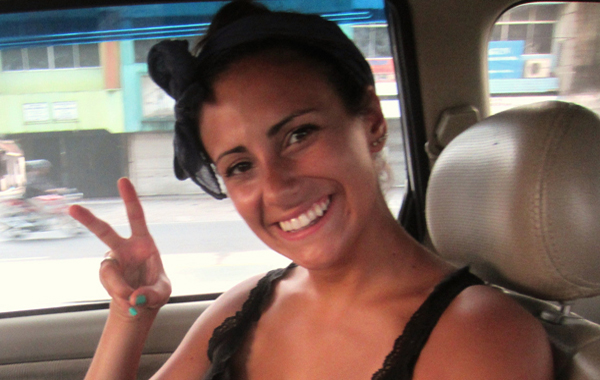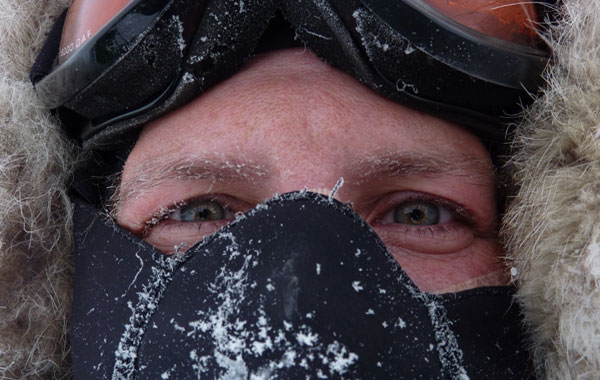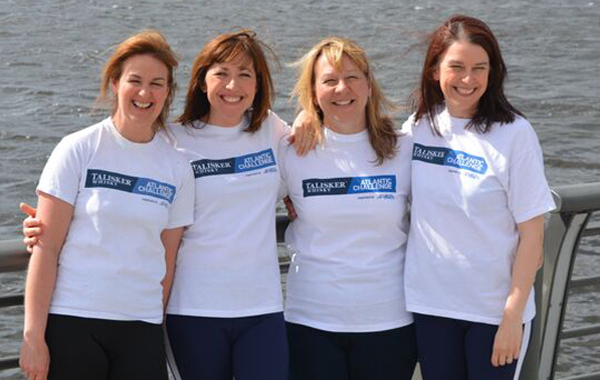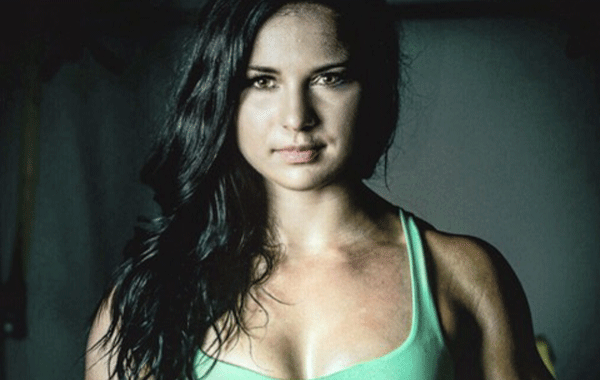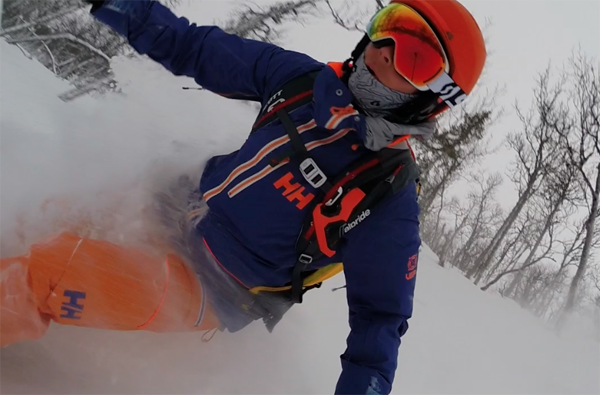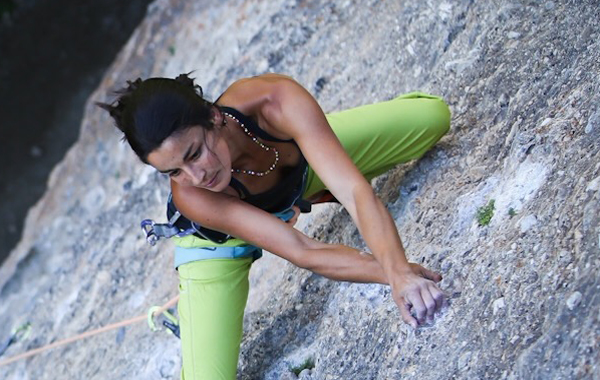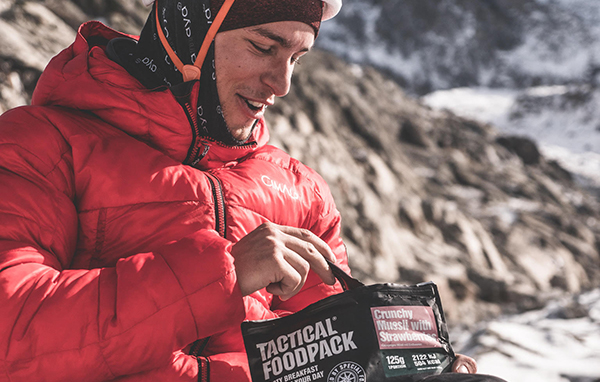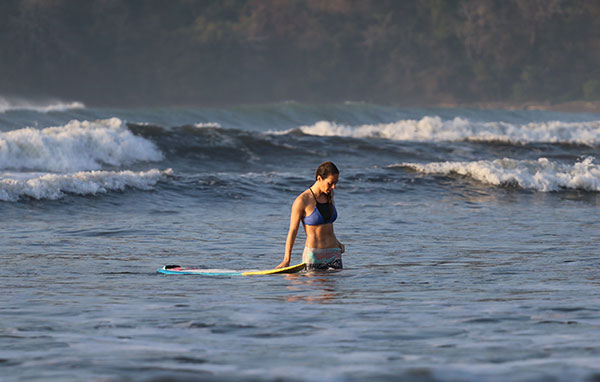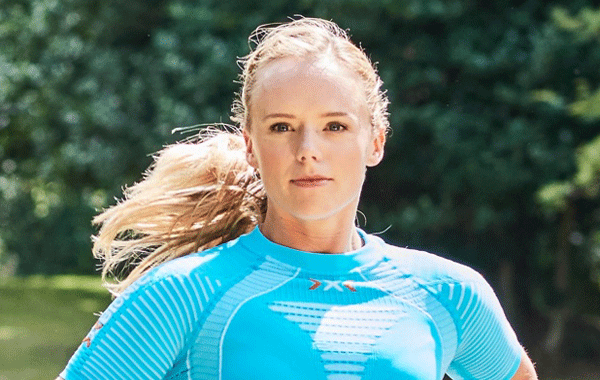
Jenny Davis had always been a competitive sportswoman but first started taking running seriously at university.
JENNY DAVIS had excelled at sport since she was young. She represented Scotland at swimming and played for local cricket, netball and basketball teams. She started taking running seriously at university and it wasn’t long before she was competing in marathons and triathlons around the UK.
When she was diagnosed with a large benign tumour in her stomach she was inspired to beat the disease and saw setting herself the goal of running the Marathon des Sables as a major part of doing this. She signed up for the ultramarathon from her hospital bed and completed it in 2015. She is set to tackle the race again next year.
Running has since taken Jenny around the world and she has made a name for herself in some of the toughest races out there. Her achievements and work to inspire women have seen her become an ambassador for Women In Sport.
In this exclusive interview Jenny talks about that troubling time in 2015 and planning and competing in the Marathon des Sables, one of the hardest ultramarathons on the planet. Read on to hear more about her running highlights and triumphs and find out all about her planned expedition to Antarctica next year.
You can find out more about Jenny at www.jennydavis.co.uk.
When did you start running and at what stage was it you found you had a real talent for the sport?
I’ve been involved in sport from a young age, I swam on the junior Scotland swimming team and played in the local cricket, netball and basketball teams. I probably started focusing on running while at University in Edinburgh, I dare anyone to visit Arthur’s Seat and not be tempted to run around it.
From there I ended up taking part in triathlons and marathons across Scotland and England, did well and it grew from there.
Tell us about how your period of sickness led you to enter the Marathon des Sables 2015, and what was that the race you chose?
It started with sharp pains down my left side which I ignored for some time and eventually visited my GP when the pain became unbearable. To cut a long story short, I had a large benign tumour in my stomach and some treatment for it.
The treatment was worse than the operation and the recovery, I was most fortunate in that the tumour turned out to be benign.
Undoubtedly the experience changed me and while I’d always done sports and had an adventurous spirit, suddenly anything and everything seemed possible as life could have turned out quite differently for me.
Learn from my mistakes, it really doesn’t take long to get checked out by your GP if you have any concerns over health issues!
How hard was it to motivate yourself from a hospital bed and how much planning and training did you put into that race?
Motivation was the last of my problems, being confined to a hospital bed and the months of recovery that followed are the toughest months I’ve faced. Not being able to exercise or even take long walks was incredibly difficult for me. I took solace in being able to plan for the future while unable to do much but I hampered my recovery by failing to listen to my doctors and trying to do too much too soon.
I actually signed up for the Marathon des Sables from my hospital bed, however, I don’t remember doing it. I used my iPad and the hospital wifi to register for the race, while on morphine. I was on a waiting list as the race was only months away, it was quite the shock to get an email a few days before Christmas congratulating me on securing a race spot.
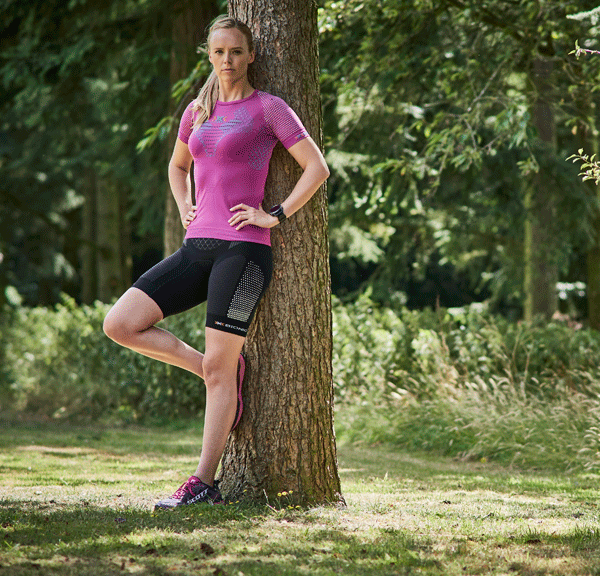
Jenny signed up for the Marathon des Sables while in hospital where she was being treated for a benign tumour.
What was your experience of the Marathon des Sables and how did you finish?
I made friends for life during that race, both ones I speak with everyday and others who are in the close knit ultra running community. My friend Aaron and I were in the same tent and we’ve gone on to start www.KitJam.com, a kit and food resource for ultra runners and explorers. We’ve been able to sponsor other up and coming ultra runners, last year focusing on Moroccan runners. Our runner ended up going overall four at this year’s Marathon des Sables.
I had no idea what to expect and everything you read about the race makes it seem like an impossibly difficult challenge. The race is as hard or as easy as you make it and that depends on what your goals are. It is a race like no other and from the people I coach and my own experiences, it really is the opener race for so many.
Once they’ve done the Marathon des Sables, the ultra running world opens up and you start to sign up to all the other iconic multi-day stage races.
Unfortunately I had a knee injury in the lead up to event and an incorrect diagnosis meant I carried on training on it regardless of the pain. That caught up with me during the race and I lost a lot of places on the 100km stage on day four. I’m now coming back next year and plan to give it my all. I’m team Captain of a women’s team taking part, we have two Iranian athletes and two British runners.
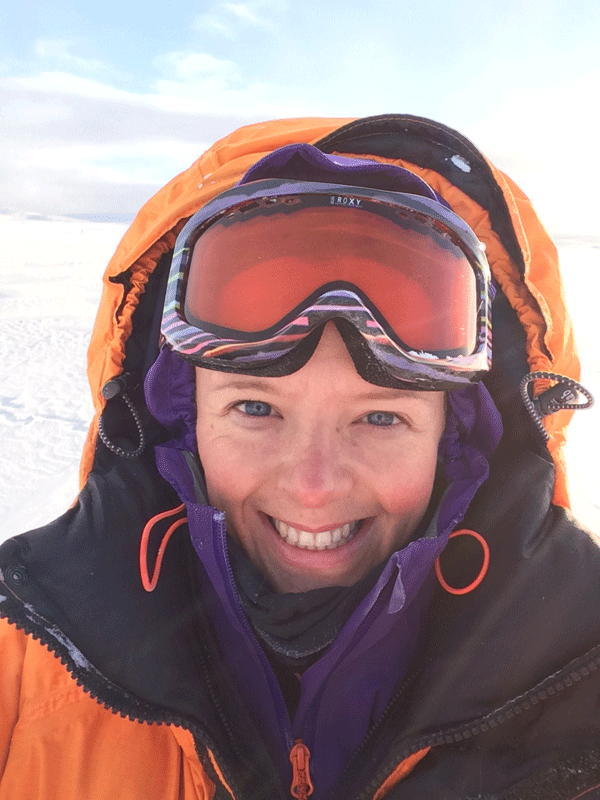
As well as running ultramarathons Jenny has an interest in several other extreme sports.
What have been some of you other biggest running successes?
Winning the Iran Silk Road 250km ultra marathon in Iran. Through my role as an Ambassador for the women’s sports charity Free to Run we were able to put a women’s team together to take part in that race and secured permission from the government to allow women to take part in a sporting event alongside men for the first time in 38 years!
Last year I took part in the 400km non-stop Ultra Gobi race in China, I took a bad fall whilst in the mountain stage of the race and bust my foot. I was out of the race and my foot plastered with a suspected fracture, I convinced them to let me back into the race as a volunteer and gave my friends quite the shock when they found me volunteering and helping them as they stumbled into checkpoint 8! I was leading until I fell so while the race wasn’t a success in terms of winning it, I learnt so much from that failure that I tried to re-classify it as a success. I shouldn’t have taken part in the race, I’d been over racing all season and my body was so fatigued with all sorts of niggles. The allure of racing in China was too much for me to turn down but as a result I ended up in a cast and boot for three months and missed invaluable training time for the upcoming season. So the success there is to learn from it and not make similar mistakes again – which is admittedly hard with the amount of races I’m invited to take part in.
I also won my heat at the World Championships Beer Mile last year, I was first female and my better half was first male!
Tell us about some of the other expeditions and adventures you’ve been on?
Summiting Kilimanjaro on the Umbwe route via the Western Breach was an expedition with school friends I’ll never forget. The permissions to go without porters and less guides were difficult to secure, especially with the route we’d chosen to take. Infamous as the toughest route up the mountain, the Western Breach has sadly taken several lives due to the difficulty of the climb. It is by far one of the toughest things I have ever done, best of all I was able to do it with my best friend and fellow explorer Hazel Robertson, who herself is recently back from a world-first expedition in Alaska.
Having left my job as a mergers and acquisitions lawyer in London last year and signing up as a full time athlete with X-Bionic, life has been one big adventure in itself! I’m currently out training in the US and having a lot of fun exploring the States.

Jenny pictured running in Norway.
What can our readers expect from your website www.jennydavis.co.uk?
Fundamentally it’s somewhere you can read about my exploits in racing and adventures to date! I’m currently planning an expedition in Antarctica and the planning is quite something.
I’m often contacted through the website by women who are looking to take on a challenge by signing up to a race or planning a mini expedition, to know it was reading about my exploits that pushed them to get on and do ti is quite powerful. There’s a real lack of female role models and if I could be so bold as to assume that I’m perhaps that to some women then I’m very happy with that. Through my work with Women In Sport, I’ll be doing a tour of UK schools once I’m back from Antarctica and it’s the part of the expedition I’m actually most excited about.
So really I hope the website inspires women to fulfil their own life ambitions, whether that’s a 5k or joining me on my next expedition. I’m in the very fortunate position of being a sponsored athlete and I think it’s important to involve others in those opportunities whenever I can, this year I was able to secure funding from my own sponsors for three others in a women’s team for racing. I love that i’m able to do things like that.
What are you currently training for and what projects and plans do you have for the rest of the year and beyond?
I am currently in training to head back to the desert next year and tackle the Marathon des Sables once more. I’m putting together a women’s team to take part in the race, including two dear friends and brilliant runners from Iran (Mahsa Torabi and Shiz Gerami). We’re filming a documentary in Iran with some brilliant partners to focus on women in countries where taking part in sport can present unique difficulties.
I have also set up a new training camp in Morocco with world-class runner Mohamed Ahansal. A huge undertaking but definitely one of my favourite projects to date. I have simply adored coaching people at camp and especially loved helping them break down their fear of a race or training and watched them blossom as their confidence grows through training in the Moroccan desert.
Another labour of love has been www.KitJam.com, it has taken up a huge amount of my time but there’s nothing more fun than working in an industry that you simply adore.
This winter I’ll be training in Colorado for my Antarctica expedition next year. I’m aiming to reach the South Pole, solo, unsupported and unassisted as fast as possible. My training calendar for the next year is therefore quite intense, from climbing Mt. Denali and taking part in a 500-mile race in Norway to climbing Mt. Vinson in Antarctica the week before the attempt.
That is the biggest project of all for me!

